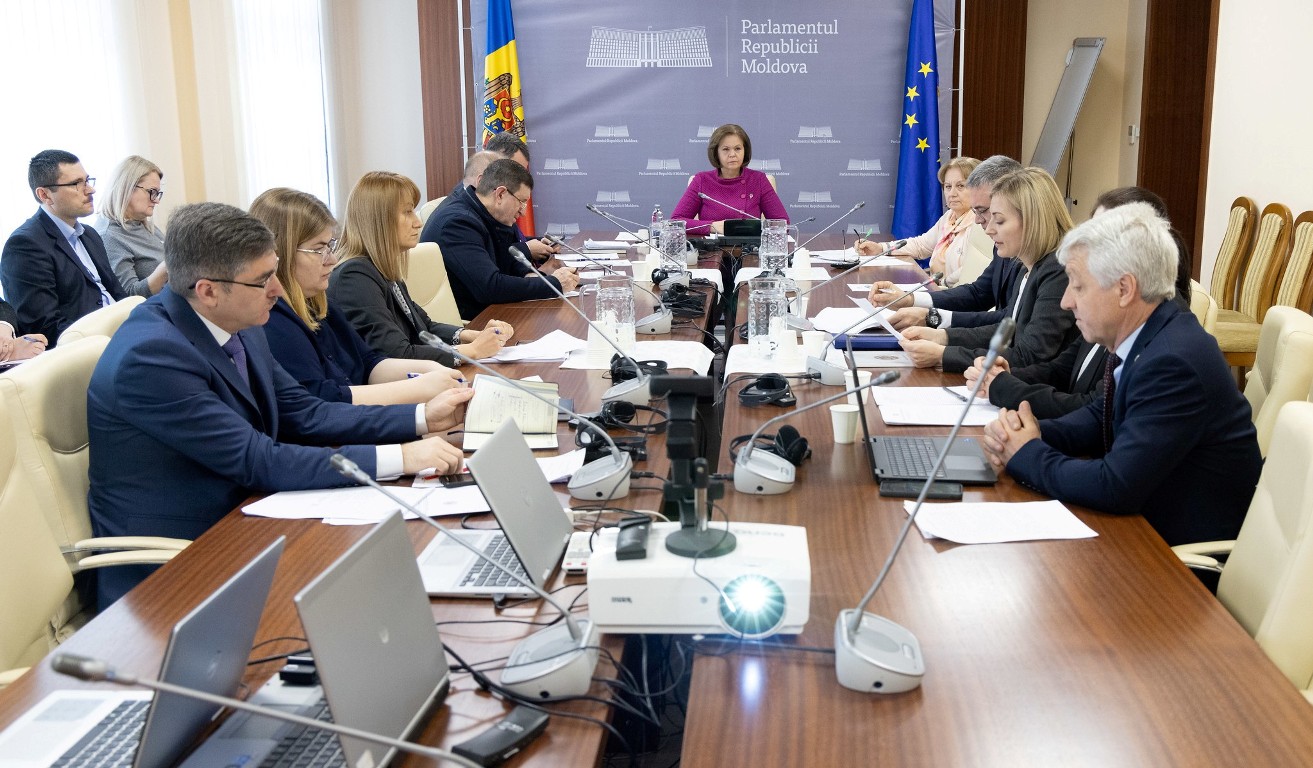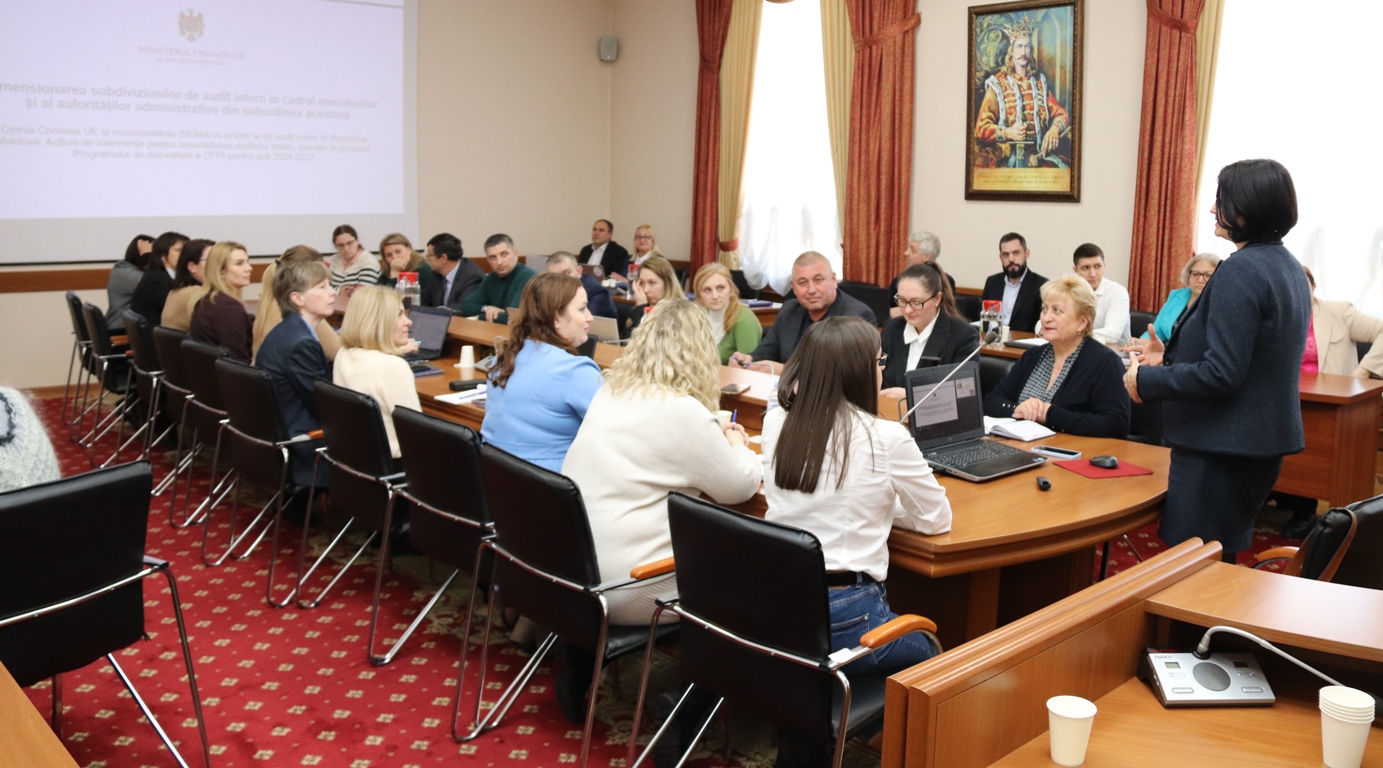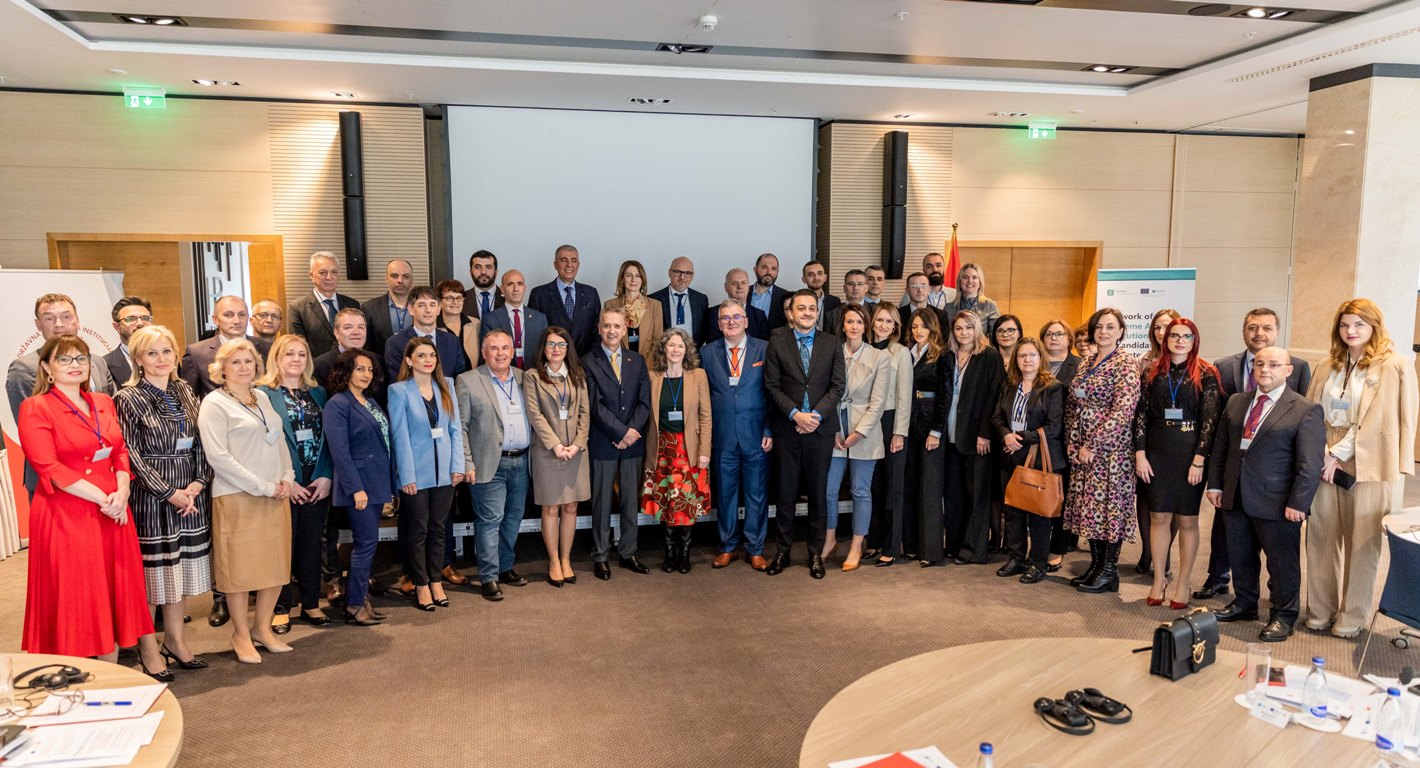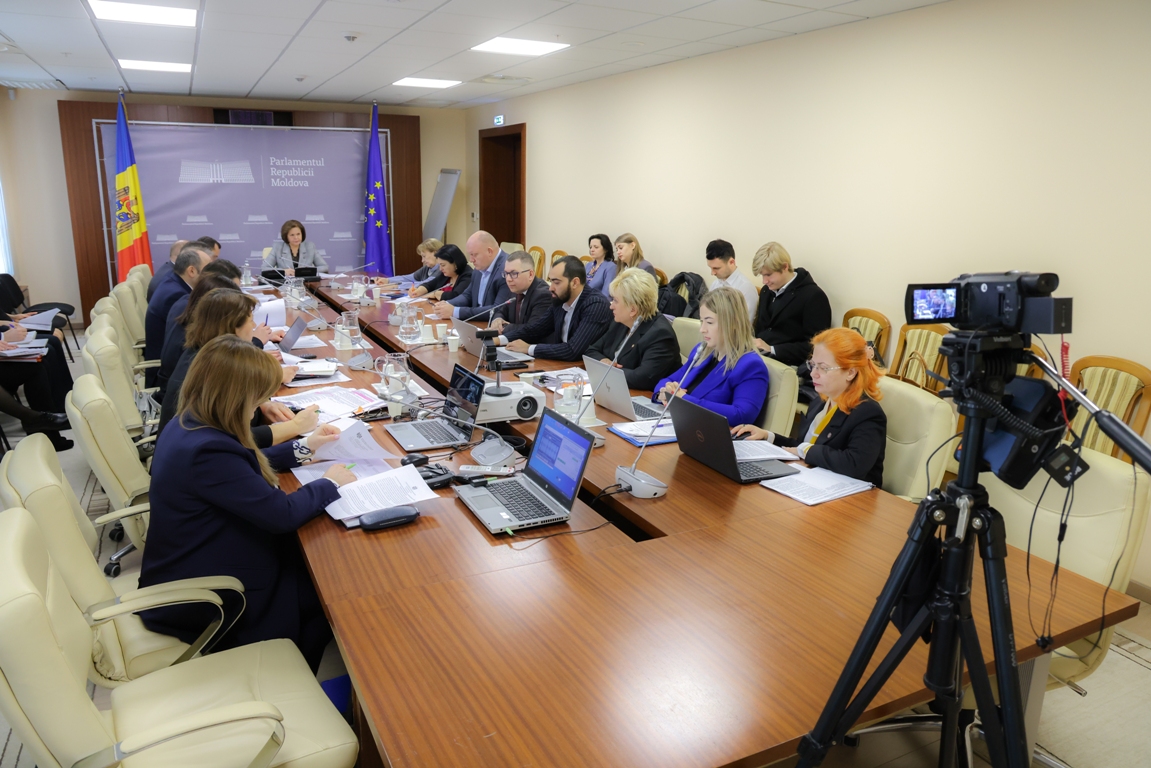
The Court of Accounts of the Republic of Moldova, on July 26, examined during an online hearing the Compliance Audit Report of the management and use of resources for health to prevent and combat the spread of COVID-19 infection.
The purpose of the audit was to evaluate the entire process of managing public financial resources at the stage of planning, evaluation, award, execution and monitoring of public procurement contracts.
The audit samples were accumulated within the Ministry of Health, Labor and Social Protection, the Ministry of Finance, the Center for Centralized Public Procurement in Health, 38 public medical institutions of different levels and subordination, JSC "SanFarm-Prim", 5 economic operators, The Public Procurement Agency, the Agency for Medicines and Medical Devices, the Customs Service of the Republic of Moldova, as well as within other entities involved.
In 2020, the COVID-19 pandemic was challenging for the medical system in the Republic of Moldova and the need for rapid adaptation to the situation, especially for providing medical institutions with protective equipment and uninterrupted supply of medicines. With the declaration of a state of emergency throughout the Republic of Moldova, between March 17 and May 15, 2020, the Ministry of Health, Labor and Social Protection requested CCPPH to take the necessary measures in order to initiate public procurement procedures for protective equipment in the quantities required for the functioning of the public medical institutions for 3 months. The calculation of the need for protective equipment was performed by the World Health Organization, which estimated that the financial means needed to purchase protective equipment will amount to 190 million lei.
Based on the evolution of the pandemic situation, under the pressure of the effects produced and the financial constraints, the financial means amounted to 147.0 million lei were not enough to provide the medical system with protective equipment in the 3 months of emergency. Thus, in the procurement procedures, small quantities of equipment were purchased, namely, 11.7 million units less compared to the estimated need of 13.4 million units. Consequently, by way of derogation from the legal framework, it was ruled that medical institutions should independently conduct public procurement procedures for medicines, protective equipment and other medical products to combat the pandemic.
With reference to the stage of evaluation and selection of tenders, within the centralized public procurement procedures, non-compliances were admitted which determined the non-transparent use of public financial means. Thus, according to the audit, when purchasing protective screens and respirators, the offer of the economic operator was not negotiated, in particular the price, requirements provided by the Regulation on public procurement, being used the negotiation procedure. This situation determined the inefficient use of financial means in the amount of 7.7 million lei. In addition, no other clauses of the contract were negotiated, and the term of delivery and payment of the goods was adapted and transposed into the contract according to the availability of the economic operator.
In this regard, other irregularities were recorded, such as:
within the centralized public procurement procedure of 38 high-performance ultrasonographs in the amount of 11 million lei, the working group designated the winner the bidder who submitted the bid with erroneous technical specifications;
in another case, the purchase of mobile radiography units in the amount of about 4.5 million lei was canceled, in the absence of a documented reason.
The process of concluding public procurement contracts was affected by the constraints of the pandemic period and the delay of centralized public procurement procedures. Thus, CCPPH carried out 30 public procurement procedures, through which goods amounted to 338 million lei were contracted, necessary for medical institutions to combat the COVID-19 pandemic. It was noted that 45 million lei were not capitalized for the purchase of protective equipment, medicines and other goods intended to prevent and combat COVID-19 infection, a situation determined by several factors.
At the same time, there were some deficiencies in the process of centralized procurement of protective equipment, generated by the urgent need to contract goods, as well as the complex system of collecting needs from medical institutions. So:
the contracting of 90.0 thousand overalls and suits of maximum protection, in the amount of 6.4 million lei, was carried out in the absence of the needs assessment, submitted by the medical institutions;
the modification of the request with the increase by 75.0 thousand of the quantities of overalls and suits of maximum protection, initially presented by the medical institutions, the aspect not being argued and documented;
within the procurement procedure of respirators, gloves, protective screens, it was found that more than 3 months have elapsed since the request and until the award of the public procurement contracts. As a result, the realization and capitalization of the contract for requesting 4.5 million gloves and respirators in the amount of 8.4 million lei was not ensured.
the process of awarding and contracting medical consumables (17.08.2020) was carried out after 3 months from the request and collection of needs assessment from medical institutions (27.05.2020). Also, it was found that the goods were not valued in the amount of 13 million lei, due to the late conclusion of the contracts, the non-request by the medical institutions of the contracted goods, as well as the reason that the economic operators did not have them in stock at that time.
At the same time, it is noted that during the state of emergency in health, the Joint Stock Company SanFarm-Prim received the protective equipment, which was purchased centrally, and had the task of distributing them to medical institutions to ensure their functionality during March-May. The audit found that so far they have not been fully distributed, and on December 31, 2020, goods amounted to 13 million lei were stored.
The evaluation of the stocks of medicines recommended by the Clinical Protocols in the treatment of COVID-19 infection reveals the existence of stocks of unused preparations, as a result of the modification of the Clinical Protocols related to the treatment of the infection. Thus, at 10 public medical institutions it was established that some types of drugs, amounting to 623.0 thousand lei, although they were purchased, were not used and included in the treatment of patients with COVID-19, because they were less effective in treating the infection.
At the same time, in the context of the amendment of the National Clinical Protocol "New type of coronavirus infection", some stocks of drugs, amounting to 2.0 million lei, were to be distributed to medical institutions of different levels, to ensure their efficient use. It is noted that, on July 20, 2021, this redistribution process was fully completed, at the request of the audit team.
The audit shows that the supply of medical institutions with disposable coveralls and maximum protection suits was affected by the late conclusion of procurement contracts. In order to ensure the fulfillment of the contracts, it was ordered to extend the term of execution of the contracts until March 31, 2021. These circumstances determined the medical institutions to purchase these protective equipment independently until delivery of the goods in some cases at increased prices and at 30.06. 2021 to have stocks in the amount of 6 million lei.
The audit also identified deficiencies at the stage of making and delivering medical devices. Thus, although the mobile radiography units were requested to be purchased in an emergency, the economic operators delivered these medical equipment for 14 district medical institutions with delay, not being calculated and collected regularly penalties (100.0 thousand lei).
At the same time, a medical institution received the urgently requested ultrasound in order to ensure the provision of medical care to patients with moderate and severe COVID-19. It is revealed that the entity did not ensure the calculation and regular collection of penalties, and upon receipt of the medical device worth 1.8 million lei, did not request the economic operator to extract from the State Register of Medical Devices, the device is not regularly registered in the information system concerning the medical device management. The analysis of the subsequent distribution of this device to the medical institution established that the economic operator applied a commercial addition of 685 thousand lei, which constitutes 61% of the value of the purchased good. In this context, it is noted that the commercial addition for medical devices is not regulated by the normative acts in force.
At the same time, it is revealed that the compliance of public procurement procedures was affected by the provisions specific to the pandemic period and by the urgent needs, which limited the transparency of the process. Thus, some medical institutions did not ensure the optimization of expenses during the state of emergency and made purchases in the amount of 1.5 million lei for capital and current repairs, procurement of fixed assets, which according to the requirements were to be suspended.
In this context, the Court of Accounts concludes that the year 2020 was marked by the pandemic of COVID-19 infection, a period in which the public authorities had a complicated task to manage a crisis situation for which the medical system of the Republic of Moldova, but also the world did not have practices in this regard. Thus, public institutions have focused their efforts on the pandemic management by strengthening the capacities of medical institutions by providing special and protective equipment, medical devices and medicines to ensure the provision of medical services to citizens.
The findings of the audit indicate the need to intensify internal control processes, especially for public procurement, at all stages and for all public entities involved in the process, with the development of a systemic action plan, which would reduce possible risks and non-compliances.
 WITH DEFICIENCES OF VIEW
WITH DEFICIENCES OF VIEW Youtube
Youtube Facebook
Facebook


 print
print






